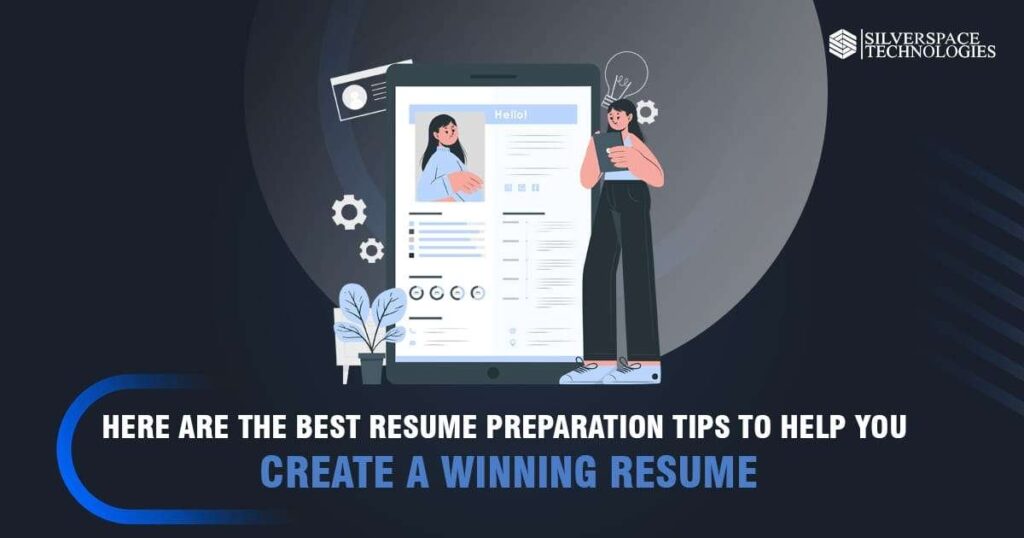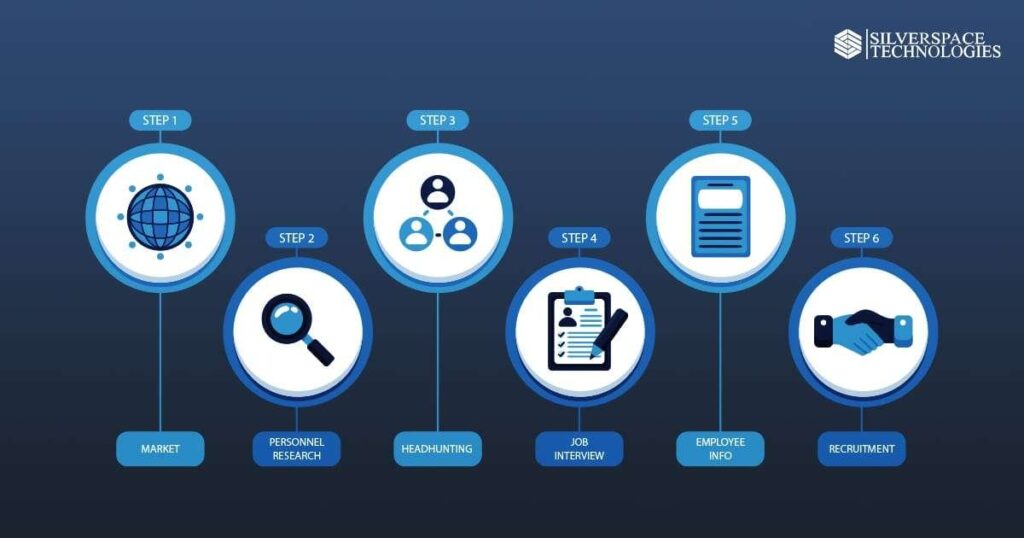
Looking for a new job can be a daunting task, especially if you are transitioning from one career to another. The job search journey can fill one with uncertainty and frustration. However, with the right tips and tricks, you can make the process much smoother and increase your chances of landing your dream job.
In this article, we will explore some of the best practices for a successful career transition. From creating the best resume to networking effectively, we will cover everything you need to know to stand out from the crowd and secure your next career move. Whether you are a recent graduate or a seasoned professional, this guide will provide you with valuable insights and actionable steps to help you navigate the job search journey with confidence and ease. So, let’s begin and help you advance your career to the next level!
1. Assessing your Skills, Values, and Interests.
The first step in any successful job search is to assess your skills, values, and interests. This will help you identify the types of jobs and industries that are a good fit for you, and will also assist you in crafting a compelling resume and cover letter that showcases your strengths and experience.
To begin, take some time to reflect on your past work experiences and identify the skills that you have developed throughout your career. Consider both technical skills, such as software proficiency or project management, as well as soft skills, such as communication or leadership.
Next, think about your values and what is important to you in a job. Do you prioritize work-life balance, a sense of purpose, or opportunities for growth and advancement? Understanding your values will help you identify the types of companies and roles that align with your personal goals and priorities.
Finally, take into account your passions and interests. What interests do you have additional than work? What subjects or professions spark your interest? By pursuing your passions, you might find new sectors or career options that you had not previously thought about.
By investing time in assessing your skills, values, and interests, you can enhance your ability to identify career options and job opportunities that align with your strengths and goals.
2. Identifying career options and job opportunities
Once you have a clear understanding of your skills, values, and interests, it’s time to start exploring career options and job opportunities. There are many resources available to help you research different industries and job roles, including job search websites, industry associations, and professional networking groups.
One effective way to explore new career paths is to conduct informational interviews with professionals working in the industries or roles that interest you. Reach out to your personal and professional networks to see if they know anyone who would be willing to speak with you about their experiences.
Another helpful resource is job shadowing, where you spend a day or more observing someone in a job role that interests you. By actively exploring and observing the job, you can gain firsthand insight into its requirements and assess its suitability for you. Additionally, consider reaching out to recruiters or staffing agencies in your field, as they may possess access to job openings that are not publicly advertised.
Taking a proactive approach to identifying career options and job opportunities enhances your chances of finding a job that aligns with your skills, values, and interests.
3. Crafting an effective resume and cover letter
Your resume and cover letter are your first introduction to potential employers, so it’s important to make a strong first impression. A well-crafted resume and cover letter can help you stand out from the competition and increase your chances of getting an interview.
When creating your resume, start by reviewing job postings in your field to identify common skills and qualifications. Tailor your resume to highlight your relevant experience and accomplishments, using bullet points to make it easy for hiring managers to skim. Be sure to include keywords and phrases that are relevant to your industry, as many companies use automated resume screening tools.
Personalize your cover letter for each job you apply for, highlighting why you are a good fit for the particular role and company. Use the job posting and company website to research the company culture and values, and incorporate this information into your cover letter. Be sure to address the hiring manager by name and close your letter with a call to action, such as requesting an interview.
By taking the time to craft an effective resume and cover letter, you can make a strong impression on potential employers and increase your chances of getting an interview.
4. Navigating the job application process
Once you have identified job opportunities and crafted your resume and cover letter, it’s time to start applying. The job application process can be time-consuming and overwhelming, but there are strategies you can use to make it more manageable.
First, prioritize your job applications based on the jobs that are the best fit for your skills and interests. Apply for these jobs first, and then move on to other opportunities if you don’t hear back.
When filling out job applications, be sure to read the instructions carefully and follow them to the letter. Many employers use automated screening tools that may reject your application if it is incomplete or does not meet the specified requirements.
Finally, be sure to keep track of the jobs you have applied for and follow up with employers if you don’t hear back within a week or two. Send a brief email expressing your continued interest in the position and asking if there are any updates on the hiring process.
5. Preparing for job interviews
Congratulations, you’ve landed an interview! This is your chance to showcase your skills and experience and make a strong impression on the hiring manager. But how do you prepare effectively for a job interview?
Start by researching the company and the job role in detail. Review the company website, social media accounts, and recent news articles to get a sense of the company culture and values. Make use of this knowledge when creating insightful interview questions.
Next, review common interview questions and prepare responses that highlight your relevant experience and accomplishments. Practice answering these questions out loud, either alone or with a friend or family member.
Finally, choose your outfit carefully and plan to arrive early for the interview. Bring copies of your resume and a notepad and pen to take notes during the interview.
By preparing effectively for your job interview, you can increase your confidence and make a strong impression on the hiring manager.
6. Following up after job interviews
After your job interview, be sure to follow up with a thank-you note or email. This is your chance to thank the hiring manager for their time, reiterate your interest in the position, and highlight any additional information that you may not have had a chance to mention during the interview.
Be sure to send your thank-you note within 24 hours of the interview, and personalize it to the specific hiring manager and job role. This can help you stand out from the other candidates and increase your chances of getting a second interview or job offer.
7. Coping with job rejection and setbacks
Unfortunately, not every job search will be successful. You may receive rejection letters or never hear back from some of the jobs you apply for. It’s important to remember that rejection is not a reflection of your worth or abilities and that setbacks are a natural part of the job search process.
When facing job rejection or setbacks, take some time to reflect on your strengths and accomplishments. Reach out to your support network for encouragement and support, and consider seeking the help of a career coach or counselor if you are feeling particularly discouraged.
Remember that each rejection brings you one step closer to finding the right job for you, and that persistence and resilience are key to a successful job search.
8. Staying motivated and focused during the job search
Finally, it’s important to stay motivated and focused during the job search process. This can be challenging, especially if you are facing job rejection or setbacks. Here are a few tips for maintaining motivation and concentration:
– To be successful in your job hunt, set attainable goals and acknowledge each step-by-step success.
– Take breaks and make time for self-care pursuits like exercise, meditation, or family time.
– Seek out support from your personal and professional networks, and consider joining a job search support group.
– Stay organized and track your progress using a job search spreadsheet or other tool.
By staying motivated and focused, you can maintain your momentum and increase your chances of finding your dream job.
9. Resources and tools for job seekers
There are many resources and tools available to job seekers, including job search websites, industry associations, and professional networking groups. Here are some additional resources to help you in your job search:
– LinkedIn Learning : offers online courses and tutorials on a variety of job-related topics, including resume writing, interviewing skills, and job search strategies.
– Vizva Consultancy : a network of employment and training throughout the United States that offer job search assistance, resume writing workshops, and other resources to job seekers.
By utilizing these resources and tools, you can enhance your knowledge and skills, thereby increasing your chances of finding a job that aligns with your qualifications and preferences.
Conclusion :-
The job search journey can be challenging, but with the right tips and tricks, you can navigate it with confidence and ease. By assessing your skills, values, and interests, identifying career options and job opportunities, crafting an effective resume and cover letter, navigating the job application process, preparing for job interviews, following up after job interviews, negotiating job offers, coping with job rejection and setbacks, and staying motivated and focused during the job search, you can increase your chances of landing your dream job. Remember to take advantage of the many resources and tools available to job seekers, including the expertise of Silverspace Inc, an IT consultancy based in the USA. Their guidance can provide valuable insights and support throughout your job search journey. Good luck on your job search!

